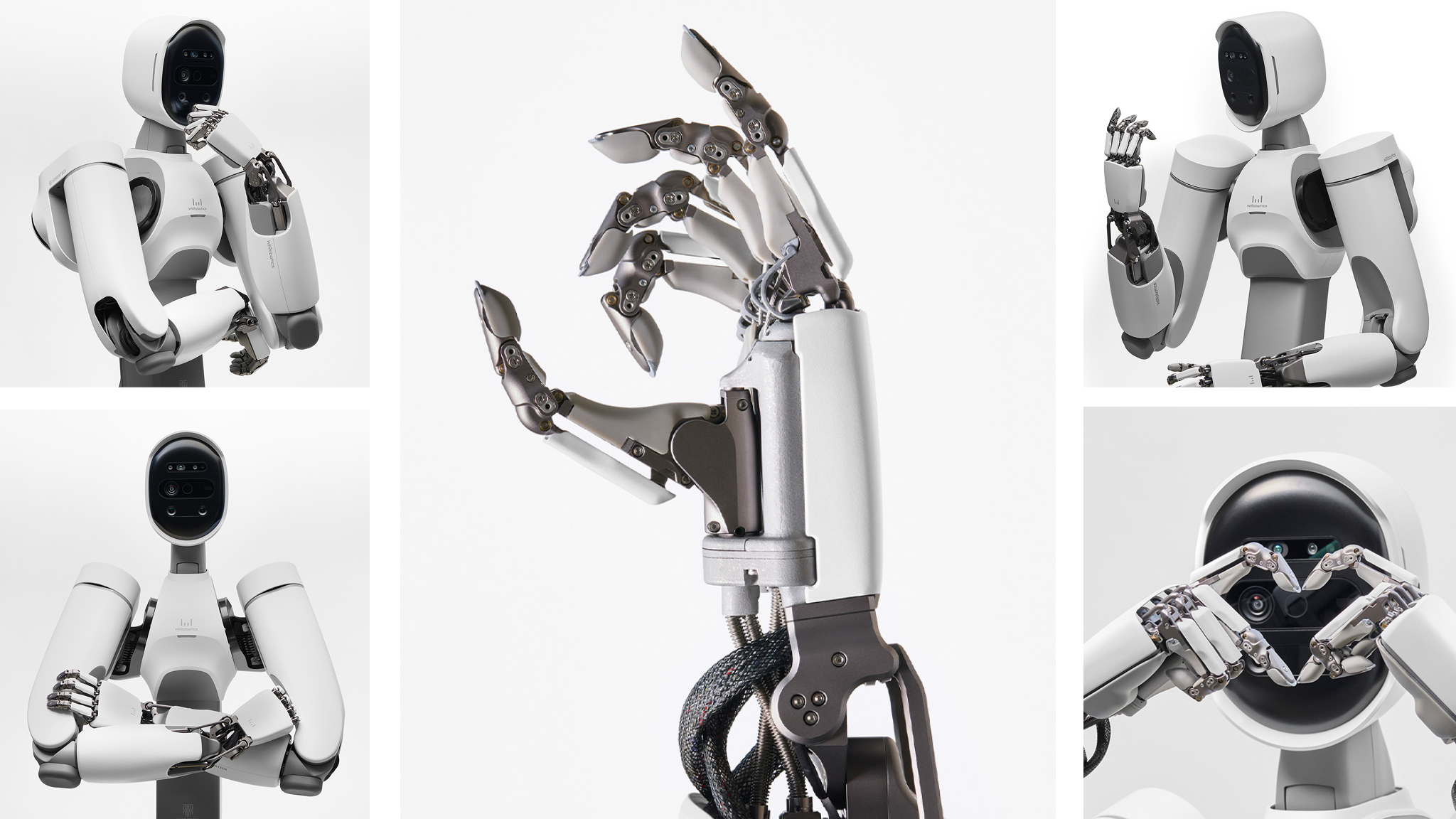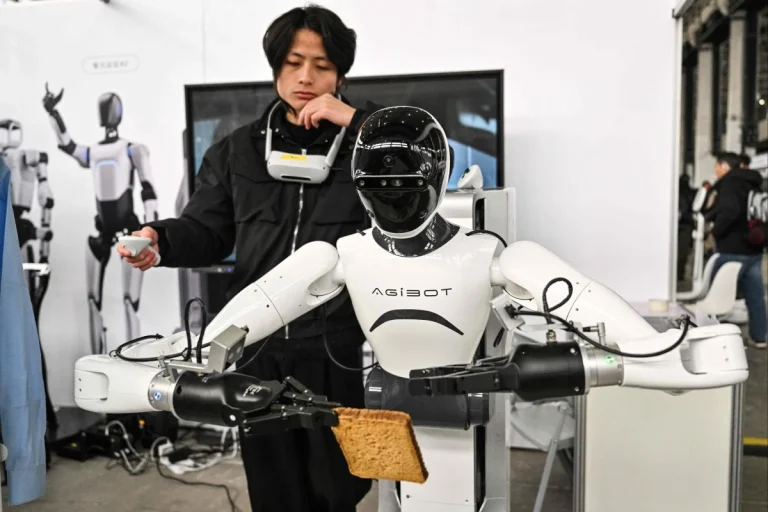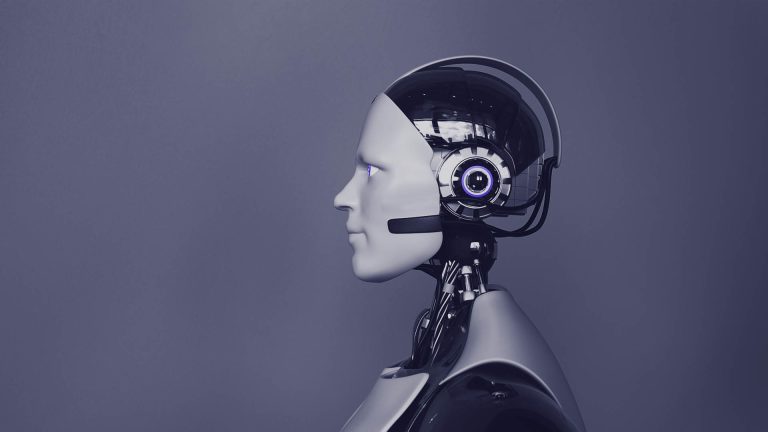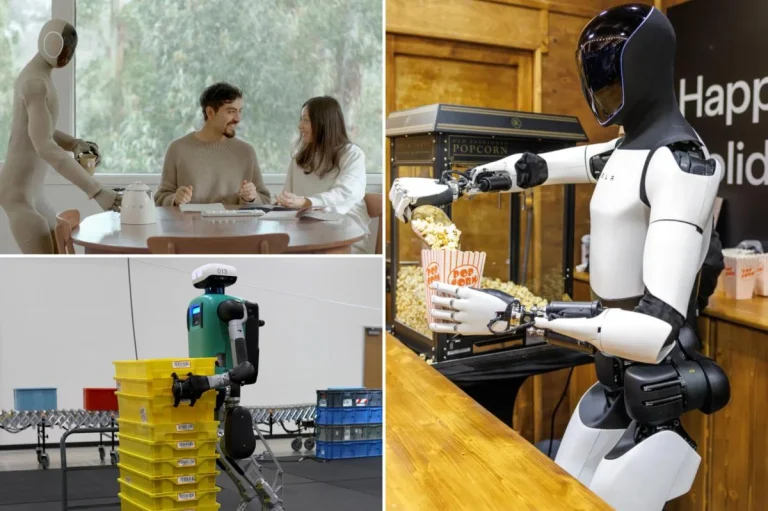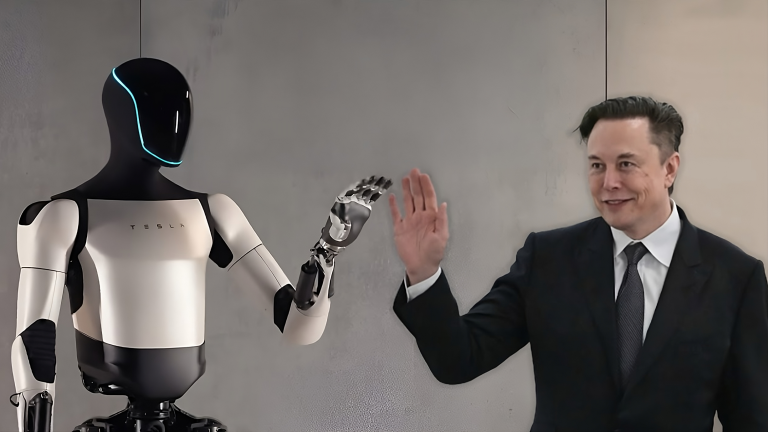WIRobotics launches ALLEX
Global robotics company WIRobotics recently unveiled the upper body of its first general‑purpose humanoid robot, ALLEX, at the Robot Innovation Hub on the campus of Korea University of Technology and Education. The name means “ALL‑EXperience.” Beyond visual recognition, it responds to physical stimuli like force, contact and impact in the real world. This new robot is designed to overcome the limits of current humanoids and is aimed at service, industrial and household applications
2026 Humanoid Robot Market Report
160 pages of exclusive insight from global robotics experts – uncover funding trends, technology challenges, leading manufacturers, supply chain shifts, and surveys and forecasts on future humanoid applications.

Featuring insights from
Aaron Saunders, Former CTO of
Boston Dynamics,
now Google DeepMind

2026 Humanoid Robot Market Report
160 pages of exclusive insight from global robotics experts – uncover funding trends, technology challenges, leading manufacturers, supply chain shifts, and surveys and forecasts on future humanoid applications.
ALLEX is built with WIRobotics’ proprietary mechanisms and control systems. The platform combines visual recognition with the ability to perceive physical stimuli, enabling it to respond to force, contact and impacts in real environments. WIRobotics sees the design as a new standard for humanoids, aiming to deliver interactions that feel more human than simple position control.
The robot’s hand has 15 degrees of freedom, allowing for precise movements and a wide range of tasks. It can detect forces as low as 100 grams without tactile sensors and can grasp with 40 newtons in the fingertips or hold 30 kilograms with a hook. Its arms use a new ultra‑low‑friction actuator and control algorithm that integrates position, force and stiffness control. A gravity‑compensated waist further contributes to safe and smooth interactions.
Weighing about 5 kg from the shoulder down and around 700 g for the hand alone, ALLEX can handle more than 3 kg with one hand. The entire robot is designed to sense and respond to external forces without traditional force sensors; it uses inherent compliance in the arms, fingers and waist to react dynamically. This helps ensure safe human–robot interaction and makes the robot suitable for machine‑learning‑based training.
WIRobotics plans to expand ALLEX into a modular platform where customers can mix and match arms, hands and body modules. The company is fostering an open innovation ecosystem and working with partners like the physical AI startup RLWRLD as well as research institutions MIT, UIUC, UMass, KIST and Maxon. By 2030, WIRobotics hopes to deliver a general‑purpose humanoid platform that anyone can use in everyday life.

